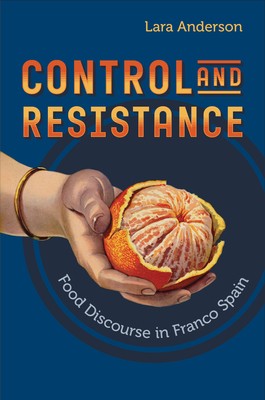
- We will send in 10–14 business days.
- Author: Lara Anderson
- Publisher: University of Toronto Press
- ISBN-10: 1487506694
- ISBN-13: 9781487506698
- Format: 16 x 22.9 x 1.5 cm, hardcover
- Language: English
- SAVE -10% with code: EXTRA
Reviews
Description
Control and Resistance reveals the various ways in which food writing of the early-Franco era was a potent political tool, producing ways of eating and thinking about food that privileged patriotism over personal desire. The author examines a diverse range of official and non-official food texts to highlight how discourse helped construct and contest identities in line with the three ideological pillars of the regime: autarky, prescriptive gender roles, and monolithic nationalism. Official food discourse produced an audience with a taste for local foodstuffs, and also created a unified gastronomic space in which regional cuisines were co-opted for the purposes of culinary nationalism.
The author discusses a genre of official texts directed solely at women, which demanded women's compliance and exclusive dedication to domesticity. Alongside such examples, Control and Resistance includes texts that offer resistance to the Franco hegemony. If the traditional view of food writing as connected to domesticity viewed such writing as apolitical, this book accordingly foregrounds food discourse as a place where identities were contested.
EXTRA 10 % discount with code: EXTRA
The promotion ends in 14d.12:19:26
The discount code is valid when purchasing from 10 €. Discounts do not stack.
- Author: Lara Anderson
- Publisher: University of Toronto Press
- ISBN-10: 1487506694
- ISBN-13: 9781487506698
- Format: 16 x 22.9 x 1.5 cm, hardcover
- Language: English English
Control and Resistance reveals the various ways in which food writing of the early-Franco era was a potent political tool, producing ways of eating and thinking about food that privileged patriotism over personal desire. The author examines a diverse range of official and non-official food texts to highlight how discourse helped construct and contest identities in line with the three ideological pillars of the regime: autarky, prescriptive gender roles, and monolithic nationalism. Official food discourse produced an audience with a taste for local foodstuffs, and also created a unified gastronomic space in which regional cuisines were co-opted for the purposes of culinary nationalism.
The author discusses a genre of official texts directed solely at women, which demanded women's compliance and exclusive dedication to domesticity. Alongside such examples, Control and Resistance includes texts that offer resistance to the Franco hegemony. If the traditional view of food writing as connected to domesticity viewed such writing as apolitical, this book accordingly foregrounds food discourse as a place where identities were contested.


Reviews